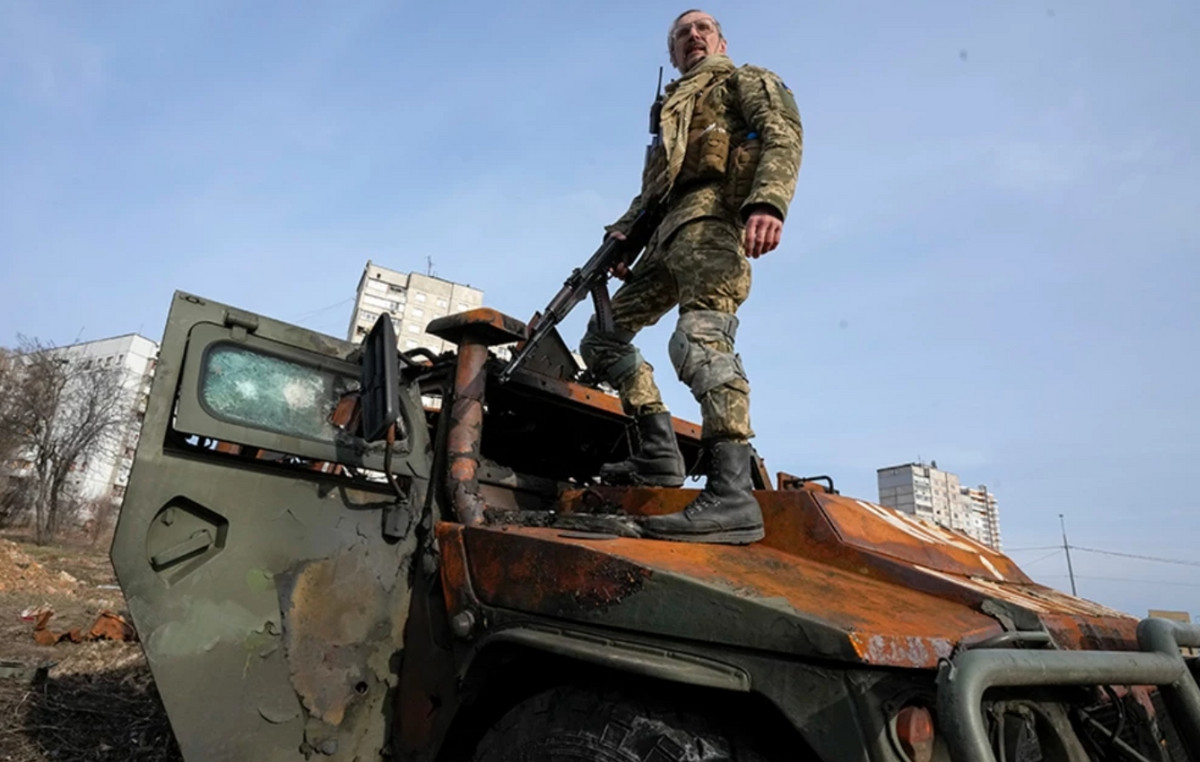War is a male thing. They teach us since childhood, when they are, most of the time, to brandish toy weapons and get carried away with the imagination in hypothetical and chilled war scenarios; And the daily chronicle reminds us.
In the Ukrainian conflict, as in any other, it is men who fight, and they always started the conflict and are sitting today in the rooms of diplomacy and negotiations.
However, more than three years after the start of the Russian Russian on a large scale in Ukraine, while millions of men are engaged at the front Women represent the real social glue of the country. They are the ones who maintain the community life cohesive, to deal with the care of children, the elderly and vulnerable people, and to guarantee access to essential services where the infrastructures have been destroyed.
This human capital made of skills, care, resilience, is the basis on which to rest the resumption of the country and yet, as reported by the newor relationship of Weworld, Her Future At Risk-Gender-Transformative Wash Programming in Wartime Ukraine, The role of women remains largely invisible in the humanitarian response and in the reconstruction plans.
But not only that, The management of the crisis from the health point of view has also been calibrated on male needs and parametersand in a context in which over 20% of families have limited access to safe water and over 10% signal a worsening in accessing toilets, women and girls pay the highest price.
Weworld immediately intervened in March 2022, shortly after the Russian invasion, to the rescue of people forced to leave their homes in the areas of the Eastern of the country, activating the on -site partners and later starting a stable presence of response to the emergency, which continues still today.
The association has always been very active in the protection of rights and, through various projects in different areas of the world, in promoting gender equality. Despite this, “to push us to do this report was the intuition that our approach to rescue was not entirely correct”, he explains Piero Meda, director of the Weworld Ukraine country.
«Visiting people’s homes, over time I realized that Even women who were over 60 found in the hygienic kits who received absorbentbut obviously being in menopause they did not use. On the other hand, almost 1 in 5 women (18.5%) declares difficulty in finding products for menstrual health ».
In short, there are those who have without necessity and who should have more but are in trouble. In this humanitarian short circuit, the only way out is an assistance that, if in the first phase of the emergency to be efficient it necessarily follows standardized protocols, with the passage of time it must be increasingly personalized. “We understood that Humanitarian emergencies are not neutral And that if the genre is not explicitly faced, the pre -existing inequalities reproduce and aggravate ».
The report is published within international research Her Future At Risk: The Cost of Humanitarian Crises on Women and Girls and made by consulting over 25 Ukrainian and international organizations and more than 800 women and girls,
From the interviews carried out to achieve it, not only the difficulty by women in finding absorbent and other similar tools, often replaced by non -safe alternatives as rags that increasing the risk of infections emerged; but also that a significant percentage due to the trauma of the war, it no longer has a regular cycle or has gone to early menopause.
About 10%, moreover, they showed difficulties of serene access to the bathrooms and showers, which in reception centers and hospitals are often not divided by gender. A peculiarity that generates embarrassment but that can also represent fertile ground for perpetuating to abuse and sexual violencewhich as in any war context also in Ukraine since the beginning of the conflict have increased.
Do not face these problems brings negative consequences on many fronts: it aggravates gender inequalities, limits the mobility and participation in the daily life of women and compromises their mental and physical well -being.
«On the contrary, an inclusive approach, which also includes LGBTQIA+people, can become an opportunity to build a more equitable company. Talk about peace and reconstruction without taking into consideration women It means building on fragile foundations », continues Piero Meda.
Yes, because as mentioned, while men are at the front, they are theirs to keep what remains of civil society standing. «Many guide trams, bus, metro, manage aid and hospitals. Young doctors are therefore fighting today to make healthcare work are elderly men or women and what we have noticed during our investigations is that in the structures that have directors or health personnel with a female prevalence, inclusion policies are more started and many things work better “.
According to Piero Meda, albeit in the drama of the conflict, focusing on the female population would be the greatest investment possible for the future of Ukraine.
«We are talking about a country that has always had great limits from this point of view and in which gender equality is far from being achieved but women will take charge of reconstruction. The military, after the war, when they return, will have enormous trauma to face and as already happened after other conflicts, I think for example at Vietnam, this will weigh on the entire community, which will inevitably make almost exclusive custody on those who have not had to actively fight. Because of this We ask that women are involved as protagonists and not as supporting actors in the reconstruction phaseand we have drawn up a package of operational recommendations aimed at humanitarian actors, donors, institutions and service providers, with the aim of promoting a structurally more inclusive and sensitive approach to the genre in the Wash response (water, hygiene and toilet-sanitary services) “.
Specifically, the needs identified by Weword are:
- Designing all Wash structures taking into account dignity, safety and accessibility, through regular checks and the participation of the communities;
- Recognize and financially finance local women’s organizations, enhancing their role in leadership and governance mechanisms;
- Systematically integrate Wash services with the prevention of violence based on gender and sexual and reproductive health, with infrastructures and services centered on the user;
- Adopt intersectional gender analyzes and accessible feedback mechanisms to adapt services to real needs;
- Promote inclusive public policies in postbellic reconstruction, with attention to gender equality in public spending, legislation and governance;
- Involve men and boys as active allies to transform Wash systems and community dynamics in a fair and sustainable sense.
Only in this way will it be possible transform the dynamics of power and existing gender inequalities.
Source: Vanity Fair
I’m Susan Karen, a professional writer and editor at World Stock Market. I specialize in Entertainment news, writing stories that keep readers informed on all the latest developments in the industry. With over five years of experience in creating engaging content and copywriting for various media outlets, I have grown to become an invaluable asset to any team.







